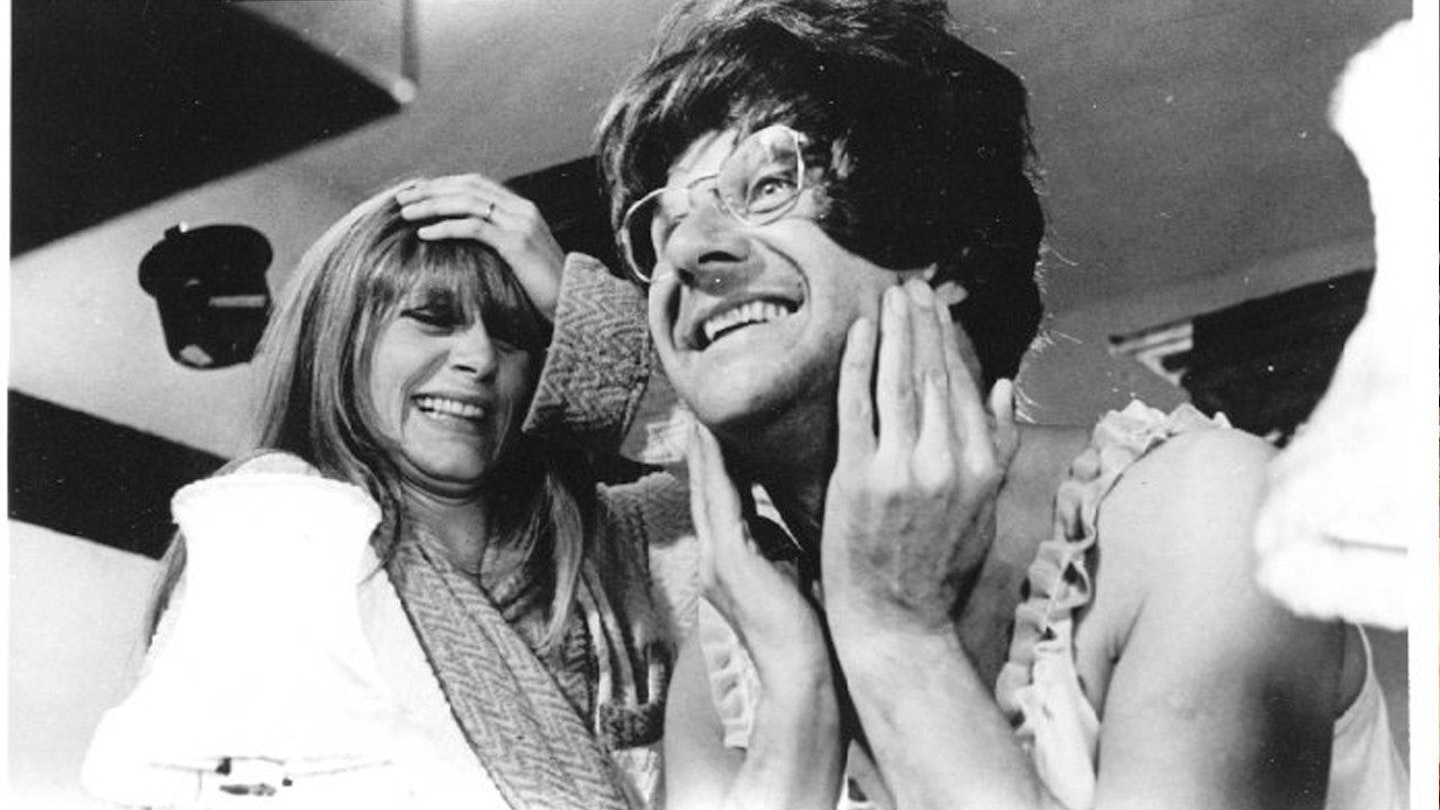As a follow-up to Repulsion, Polanski was allowed to step even further beyond the bounds of the kind of sexploitation his producers at Compton-Tekli usually specialised in, to make this black comedy. Set on the island of Lindisfarne, the film follows a squabbling married couple played marvellously by the shrill, mincing George (Pleasence)who spends most of the film in a nightdress like Carols from Repulsion and sulky, sexy Teresa (Dorleac, Catherine Deneuves sister who died in a car crash soon after). Their endless round of sex games and self-abuse is interrupted by the arrival of frog-voiced American gangster Richard (Stander) and his badly-wounded sidekick Albie (MacGowran). Their Volkswagen is stranded on a causeway with the waters rising, and they are waiting, not for Godot, but for a similarly tardy master criminal known as Katelbach, who never turns up.
The crooks take over and terrorise the couple while settling into the isolated abbey-turned-farm to wait for Katelbach, but the tables are more or less turned by the arrival of Georges friendsa young Jacqueline Bisset can be glimpsed in the companywhich forces Richard to pretend to be a butler, and allows George to do some tormenting of his own. Eventually, this explosive menage leads to a violent resolution, but for the most part the overt horrors are set aside in favour of barbed, witty byplay as the characters continually snipe at each other. Theres a notable advance over Repulsion in Polanskis sudden grasp of the possibilities of the English language; the earlier film would work almost as well as a silent movie, while Cul-de-Sac gives the wonderful cast plenty of pithy insults to hurl at each other.
Its a cruel movie, like Polanskis Polish debut feature Knife In The Water, with an unhealthy marriage at its centre and a supporting cast of effete snobs and violent thugs. But its not a complete downer, like Polanskis later The Tenant, and it does demonstrate that he can do better by humour in a stark drama like this than in his strangely lame outright comedies. Its also a revelation to be reminded that there were heady days when films as odd and as cinematic as this could be made in dear old Blighty.
